7 most influential Chinese in the world
China is known for its rich culture and heritage. This has been a result of the efforts and achievements of great people who have helped put China on the world map. Here are a selection of 7 most influential Chinese in the world. In no particular order:
1. Confucius (551 BC – 479 BC) – Chinese philosopher
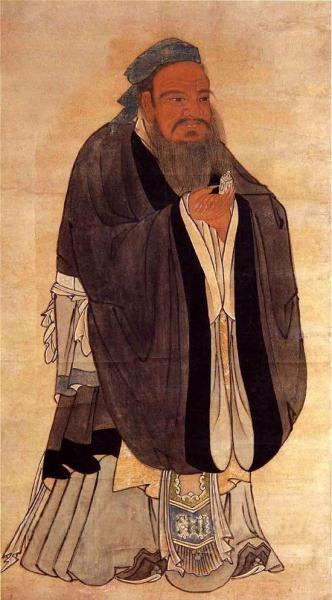 In his lifetime, Confucius never knew the impact that he had made on China and indeed, the rest of the world. Confucius was a man who lived a simple life, teaching all the people he could his ideals and moral code, a code which many people adopted years after his death known as Confucianism. Though Confucius never wrote down a single word of his beliefs and teachings, we can understand and know his thoughts from the books his disciples wrote, the Analects, and in understanding his life and beliefs, we can see what an impact this great man left on the world. His teachings focus on how mankind can improve, how we can live better lives, how we can teach our children to improve the society we live in today. Confucius was the most important Chinese philosopher of all time, and his teachings need to be recognized and comprehended today, as they have the ability to enact change, something this world urgently needs.
In his lifetime, Confucius never knew the impact that he had made on China and indeed, the rest of the world. Confucius was a man who lived a simple life, teaching all the people he could his ideals and moral code, a code which many people adopted years after his death known as Confucianism. Though Confucius never wrote down a single word of his beliefs and teachings, we can understand and know his thoughts from the books his disciples wrote, the Analects, and in understanding his life and beliefs, we can see what an impact this great man left on the world. His teachings focus on how mankind can improve, how we can live better lives, how we can teach our children to improve the society we live in today. Confucius was the most important Chinese philosopher of all time, and his teachings need to be recognized and comprehended today, as they have the ability to enact change, something this world urgently needs.
2. Qin Shi Huang (259 BC – 210 BC) – the king of the Chinese State of Qin
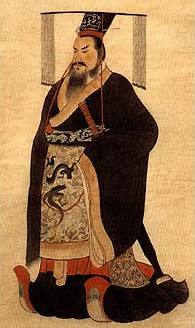 Maybe not. But it’s likely you have heard of the country he unified – China – and the Great Wall he built. Plus, there’s that enormous army of terra-cotta warriors that watches over his mysterious mausoleum.
Maybe not. But it’s likely you have heard of the country he unified – China – and the Great Wall he built. Plus, there’s that enormous army of terra-cotta warriors that watches over his mysterious mausoleum.
The world’s most populous nation and emerging superpower was a jumble of warring states when Qin Shi Huang appeared on the scene in 246 B.C. as a powerful regional leader. Two decades later he was Emperor, bringing together the vast territory that would become China, standardizing its culture and implementing a form of government that his followers would use for another 2,000 years.
Qin Shi Huang (pronouncerd “chin shuh huang”) remains a mythical figure in China, still laying in rest in the largest unopened tomb in history, said to contain rivers of mercury and a ceiling covered in precious stones.
3. Genghis Kahn ( 1162–1227) – Leader of Mongol Empire stretching from China to Europe
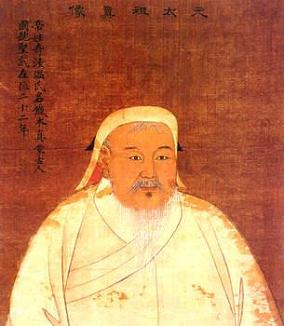 Genghis Khan and the Mongols are invariably associated with terrible tales of conquest, destruction, and bloodshed. This famed clan leader and his immediate successors created the largest empire ever to exist, spanning the entire Asian continent from the Pacific Ocean to modern-day Hungary in Europe. Such an empire could not have been shaped without visionary leadership, superior organizational skills, the swiftest and most resilient cavalry ever known, an army of superb archers (the “devil’s horsemen” in Western sources), the existence of politically weakened states across Asia, and, of course, havoc and devastation.
Genghis Khan and the Mongols are invariably associated with terrible tales of conquest, destruction, and bloodshed. This famed clan leader and his immediate successors created the largest empire ever to exist, spanning the entire Asian continent from the Pacific Ocean to modern-day Hungary in Europe. Such an empire could not have been shaped without visionary leadership, superior organizational skills, the swiftest and most resilient cavalry ever known, an army of superb archers (the “devil’s horsemen” in Western sources), the existence of politically weakened states across Asia, and, of course, havoc and devastation.
4. Mao Zedong (1893-1976) – founder and chairman of the People’s Republic of China
 Mao Zedong was one of the founders of the Chinese Communist Party and the first chairman of the People’s Republic of China in 1949. He had an enormous influence on China and was greatly admired for founding the Chinese republic and for changes in the early years of his rule. His later policies were less successful. During the years that he ruled China, Mao Zedong and his philosophies made a large impact on the world, not just China itself.
Mao Zedong was one of the founders of the Chinese Communist Party and the first chairman of the People’s Republic of China in 1949. He had an enormous influence on China and was greatly admired for founding the Chinese republic and for changes in the early years of his rule. His later policies were less successful. During the years that he ruled China, Mao Zedong and his philosophies made a large impact on the world, not just China itself.
5. Mencius (385BC – 303/302 BC) – Chinese philosopher who was arguably the most famous Confucian after Confucius himself
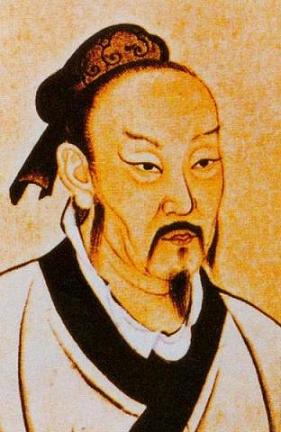 Known throughout East Asia as Mengzi, or “Master Meng,” Mencius was a Chinese philosopher of the late Zhou dynasty, an instrumental figure in the spread of the Confucian tradition, and a brilliant illuminator of its ideas. Mencius was active during the Warring States Period (403-221 B.C.E.), in which competing powers sought to control the declining Zhou empire. Like Confucius, Mencius journeyed to one feudal court after another, searching for a proper lord who could put his teachings into practice. Only a leader who possessed the moral qualities of a true king could unify China, Mencius believed, and in his defense of Zhou rule and Confucian philosophy, he developed an innovative and highly nuanced approach to understanding politics, self-cultivation, and human nature, profoundly influencing the course of Confucian thought and East Asian culture.
Known throughout East Asia as Mengzi, or “Master Meng,” Mencius was a Chinese philosopher of the late Zhou dynasty, an instrumental figure in the spread of the Confucian tradition, and a brilliant illuminator of its ideas. Mencius was active during the Warring States Period (403-221 B.C.E.), in which competing powers sought to control the declining Zhou empire. Like Confucius, Mencius journeyed to one feudal court after another, searching for a proper lord who could put his teachings into practice. Only a leader who possessed the moral qualities of a true king could unify China, Mencius believed, and in his defense of Zhou rule and Confucian philosophy, he developed an innovative and highly nuanced approach to understanding politics, self-cultivation, and human nature, profoundly influencing the course of Confucian thought and East Asian culture.
6. Laozi (5th-4th century BCE) – a philosopher of ancient China,
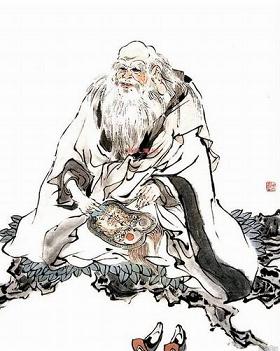 Laozi (or Lao Tzu) was a naturalistic philosopher-sage attributed with founding the Chinese way of life known as Daoism, and credited with having written the Dao De Jing, though both claims have been historically disputed by scholars. Perhaps a legendary figure, Laozi’s influence on Chinese history, thought, and culture has nevertheless been substantial. He insisted on living in a harmonious and spontaneous manner rather than exploiting the earth and other beings for self-aggrandizement. In this way, Laozi’s vision seems instructive even today for he emphasized the interconnectedness of life over human self-centeredness.
Laozi (or Lao Tzu) was a naturalistic philosopher-sage attributed with founding the Chinese way of life known as Daoism, and credited with having written the Dao De Jing, though both claims have been historically disputed by scholars. Perhaps a legendary figure, Laozi’s influence on Chinese history, thought, and culture has nevertheless been substantial. He insisted on living in a harmonious and spontaneous manner rather than exploiting the earth and other beings for self-aggrandizement. In this way, Laozi’s vision seems instructive even today for he emphasized the interconnectedness of life over human self-centeredness.
7. Cai Lun (50 AD – 121) – the inventor of paper and the papermaking process
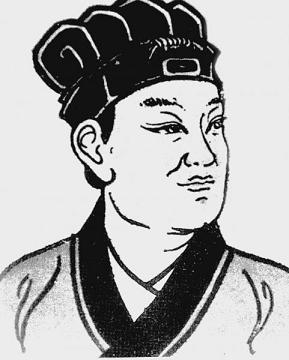 Cai Lun (50 AD – 121) was a Chinese eunuch. He is traditionally regarded as the inventor of paper and the papermaking process, in forms recognizable in modern times as paper. Although paper existed in China before Cai Lun (since the 2nd century BC), he was responsible for the first significant improvement and standardization of paper-making by adding essential new materials into its composition.
Cai Lun (50 AD – 121) was a Chinese eunuch. He is traditionally regarded as the inventor of paper and the papermaking process, in forms recognizable in modern times as paper. Although paper existed in China before Cai Lun (since the 2nd century BC), he was responsible for the first significant improvement and standardization of paper-making by adding essential new materials into its composition.
After Cai invented the papermaking process in 105, it became widely used as a writing medium in China by the 3rd century. It enabled China to develop its civilization much faster than it had with earlier writing materials. By the 7th century, China’s papermaking technique had spread to Korea, Vietnam, and Japan.In 751, some Chinese paper makers were captured by Arabs after Tang troops were defeated in the Battle of Talas River. The techniques of papermaking then spread to the West. When paper was first introduced to Europe in the 12th century, it gradually revolutionized the manner in which written communication could be spread from region to region. Along with contact between Arabs and Europeans during the Crusades, the widespread use of paper aided the foundation of the Scholastic Age in Europe.


Where is Sun Tzu (for The Art of War). He may be just imaginary figure (some think that he is just a story figure), he should be there. Sun Tzu might be after Confucius in term of influence rather than being well known (they are two different properties).
Sun Tzu is a great militarist and strategist, his main contribution is the strategy of how to win in a war, which is opposite to peace, so although he is a great man but not included on the list.